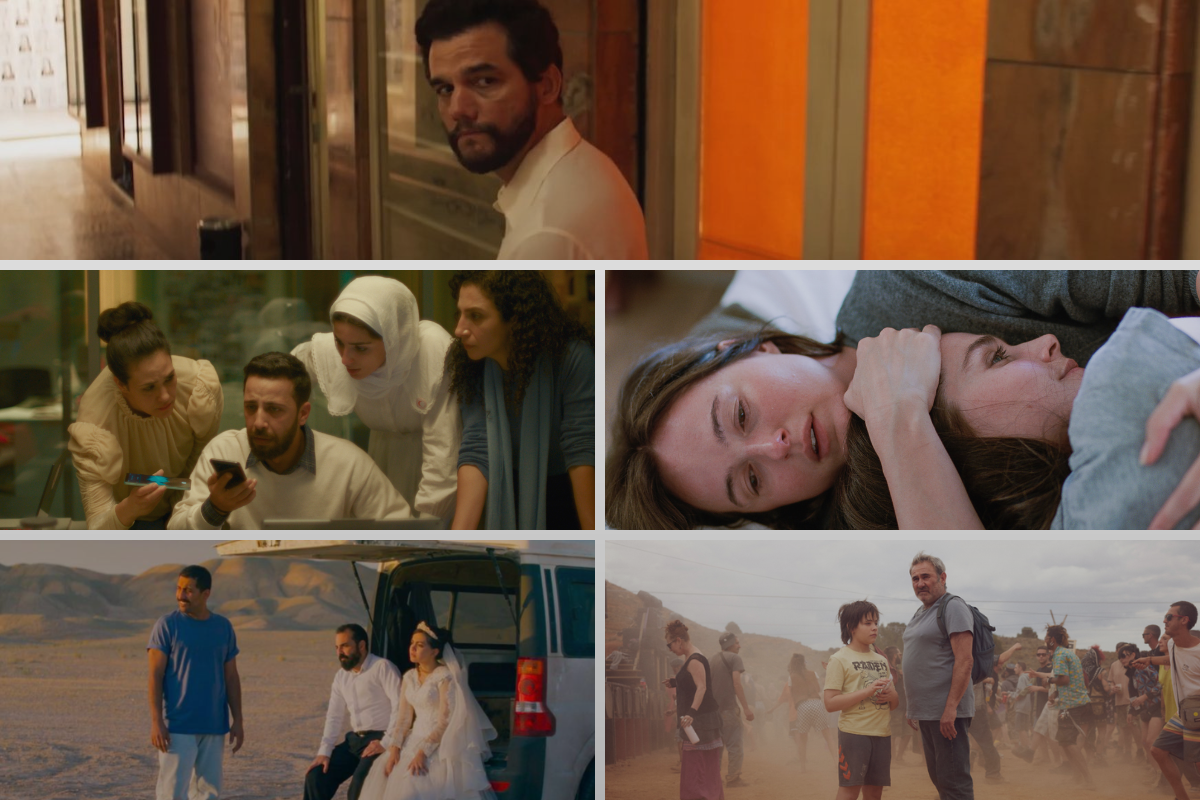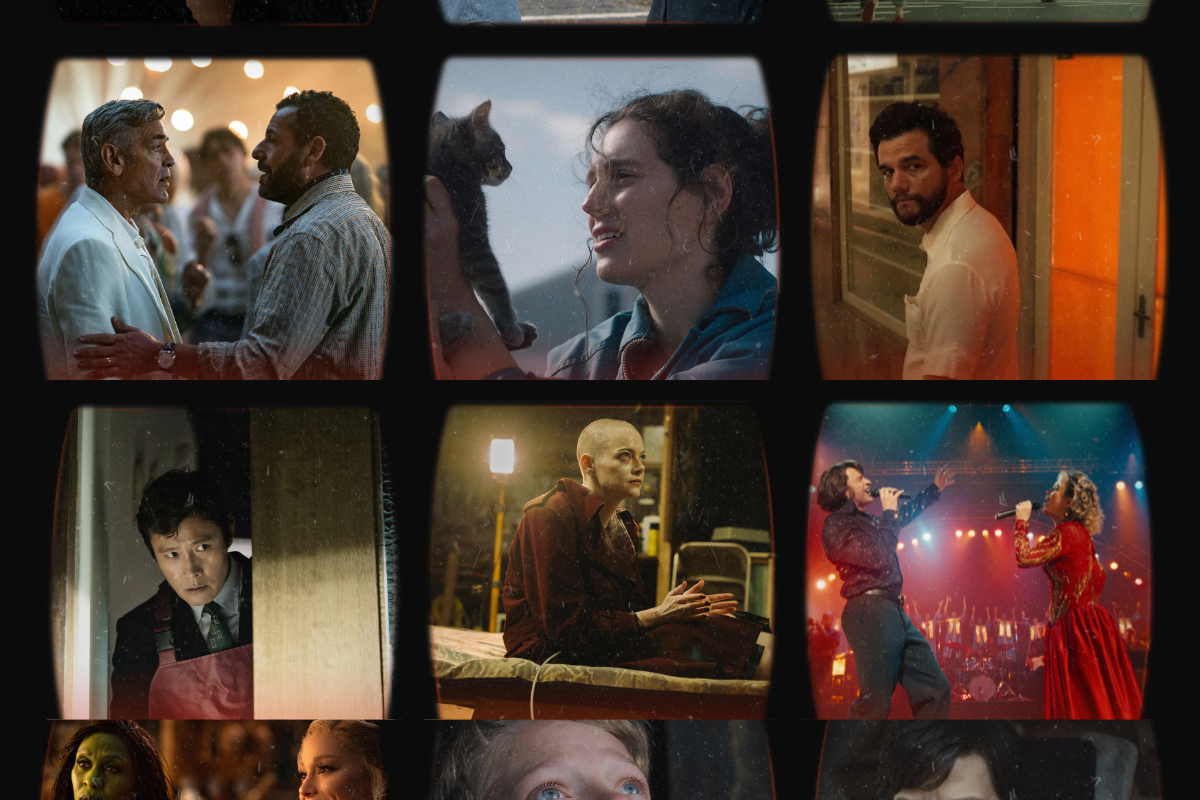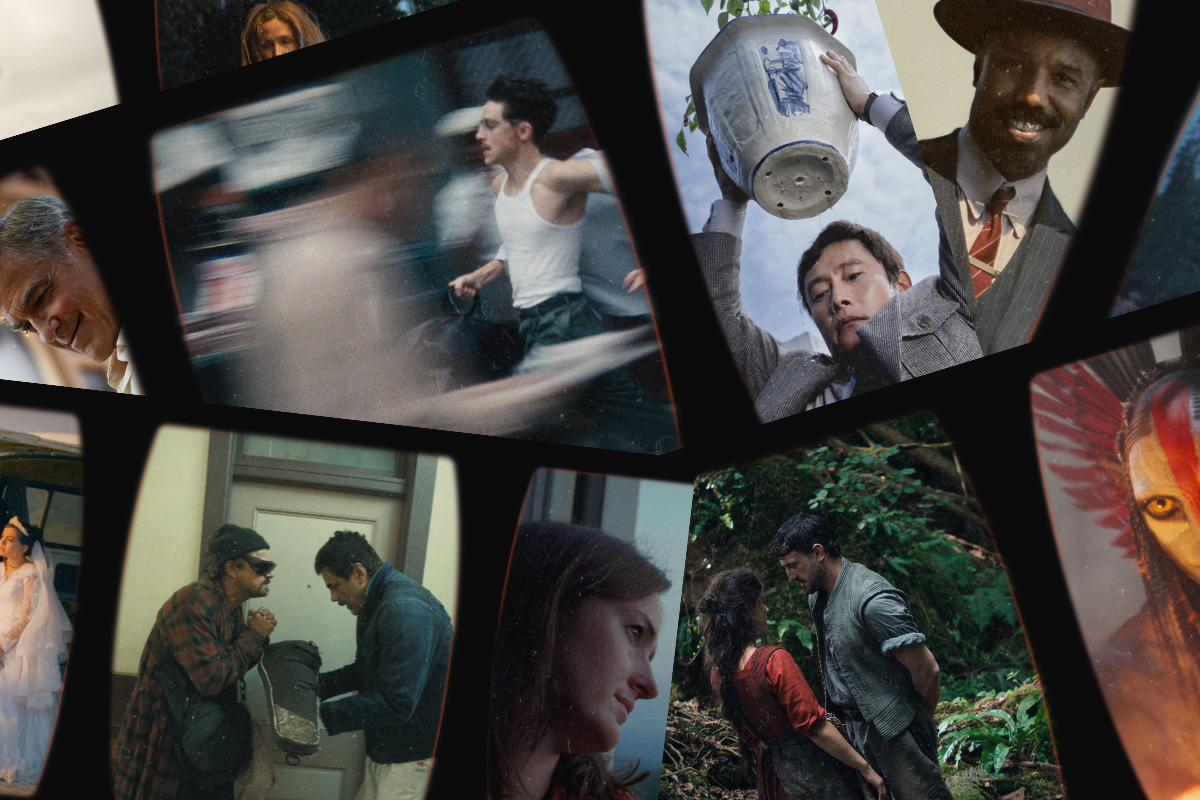How to Compete with Netflix (and Win)
Since the company’s inception in 2019, the platform Nebula has since accumulated over 650,000 subscribers, making it the largest creator-owned internet streaming platform. Script spoke with two top executives for Nebula—Dave Wiskus and Trenton Waterson—uncovering instant insights into how to succeed as an independent filmmaker in the modern industry.
It’s never been a better time to be an independent filmmaker. In the old days, independent filmmaking was a fly-by-the-seat-of-your-pants enterprise, often with low production values that couldn’t overcome a desperation for proper funding and distribution. YouTube promised an uncharted frontier, soon ushering in an era where independent filmmaking could rival the decaying studio system. But when its creators become as disenfranchised with YouTube’s algorithm and content restrictions as they’d become with the studio system, industry pioneers saw an opening to compete not just with YouTube but more conventional streaming platforms like Netflix.
Today, the streaming platform Nebula leads the way for high production value, irresistible concepts and content, and a series of classes rivaled only by industry giants like MasterClass. It’s no wonder that in March 2024, FastCompany named Nebula one of the most innovative companies in video. As a video-on-demand streaming service provider, Nebula provides a complement to its creators' other distribution channels (primarily YouTube). Since the company’s inception in 2019, the platform has since accumulated over 650,000 subscribers, making it the largest creator-owned internet streaming platform.
We sat down with two top executives for Nebula—Dave Wiskus and Trenton Waterson—uncovering instant insights into how to succeed as an independent filmmaker in the modern industry.
Stephenie: What do we need to understand about Nebula as a platform? What's the story about the brand?
Trenton: Nebula empowers creators to tell their stories without comments, without trolls in the comments, without censorship, and without forfeiting ownership of that idea. Nebula is a place where creators can maintain control, ownership, and profit off of those creative ideas, and that's huge. Anywhere else, they would have to sign over the IP or take a much more smaller chunk of the of the return for not just the idea, but for their hustle. I came from a world of seeing so many friends who—directors, writers—sign deals where they maybe took away 5% or 10% at the end of the day of the thing that they worked five years to make. Nebula does not do that to creators.
Dave: What we're trying to do is bring a certain type of creator, somebody who didn't come out of that traditional media landscape ecosystem, and build a path for them to the same types of opportunities that would be available through a traditional studio system, or a network television system.
The difference between us and the other streamers, the advantage we have is we have a talent pool of however many millions of people making stuff on YouTube or TikTok, or whatever other user-generated content platform people are making things on. And we have an understanding, we speak that language natively, that's where we come from, that's who we are.
Stephenie: I saw in one article, I don't remember who said it, but somebody from Nebula said that it's more positioned as a kind of Netflix competitor.
Dave: Yeah, we don't look at YouTube as a competitor at all. We're actually really friendly with the YouTube team. We see YouTube as a partner, they see us as a partner, we're both trying to solve the same problem, which is to take this collection of creators and help them build businesses, and help them build sustainability that’s good for YouTube, because they want to be seen as the foundational platform where these things are possible. We are just here to try to provide step two, step three, step four.
Stephenie: Despite all of those obstacles, what draws you to independent filmmaking?
Trenton: I've been an independent filmmaker since 2008. It was so nice to find a place at Nebula to bring my experience on the studio side, but most importantly on the independent side to creators who have a script, or want to direct, or are actors and bring the tools that I had in my toolbelt from my experience to that process in here.
Stephenie: That ties into the next question. What does Nebula empower these people to do that they couldn't do on their own? Is it funding? Distribution? Momentum?
Dave: A little of all of that. Where we come in is a lot of these creators will have ideas, so with Jessie Gender and Identiteaze, she had an idea, she had a vision for the story that she wanted to tell, she had a world built in her head. And what she was missing was not the script, the idea was simply how would this thing get made? Something that is kind of a high-concept sci-fi project that's not something you can just go and film in your backyard with your buddies and call it a day, and not if you want it to be any good or taken seriously, or have it have a chance to go on to film festivals or anything like that.
Stephenie: Let me reverse the direction back to you. What is it that Nebula empowers you to do that you couldn't do without it?
Dave: So much of the creator economy, the user-generated content space, comes down to TV. You look at somebody like Stephen Colbert who comes out every night, he doesn't write his own jokes, he's not operating his own camera, he's not designing the lighting, he's not designing the set, he's not editing his videos, he comes out and he tells the jokes, and he's charming, and that's his job. If you're a YouTuber, you do that and literally everything else too, at least for some period of time. And so there's this inherent scrappiness I think for digital creators where we're used to, if we want something, we kind of have to build it ourselves.
Trenton: With my role specifically as VP of Nebula Production, I'm able to bring this hybrid knowledge to the table. I'm able to say alongside Dave, and alongside Sam our Chief Content Officer, I'm able to tell the creator, 'Hey, here's exactly when we can make this, here's exactly how it can happen, here's access, here's a list of the tools we have available to you to keep this low cost but still make it look like we spent millions of dollars on it,' and we're able to take our pitches and greenlight within a matter of weeks instead of a creator waiting around for a matter of a year or two.
Dave: The real agenda here is not to blow a hole in the side of the vault and take all the money. Our agenda is to integrate into that system and make friends and become a part of it, and then take it over from the inside. This is a heist. We're attempting the biggest heist in Hollywood history.
Stephenie: Is that the next five years for Nebula? A heist?
Trenton: The next five years is a heist. I've been here two years and I can speak from the experience that our content budget from my first year into the second year into what we are projecting for our third year is growing. I can look at how rapidly Nebula the streaming app is growing. I can see how folks like Variety are now writing headlines about us. Script Magazine is writing about us. That's freaking cool to us.
I can see in five years us building that bridge between YouTube and a Netflix deal, or a deal with Apple. It can go faster with partners who want to come in and believe in what we're doing, but we're still building it, and I believe that bridge will be solid in five years. People will hear about our Originals that are being greenlit for over million dollar budgets, not just under million dollar budgets.
Stephenie: By the same token, when Orange is the New Black and House of Cards first came out, those were not seen as prestige television. They were marketed as a streaming series. People didn't know that they were going to be as big as they were, and I think the same thing could end up happening for some of the Nebula Originals.
Dave: Yeah, look, the truth, there's no escaping this bottom line, no matter what I say, no matter what I do, this is an inescapable fact that the next generation of filmmakers is on YouTube right now. Sure, they might also be in film school, but they're definitely on YouTube, or TikTok, or Instagram, or whatever, but they're making things because the tools all exist, we all have cameras in our pockets. I have a 4K Production Studio in my pocket. Most people do, at least here in the US. At what point in the future is every single Best Picture nominee a movie from people who came from YouTube? In some way or another, I don't think it's avoidable.
I think that this is just a matter of time, and if that's true, I believe it is, but if that's true then the question is what are we doing about that now? In my mind, what's exciting is the inevitability of it means that we can approach the question with confidence. The agenda specifically is prestige, we want to go win Emmys, we want to go win Oscars. Not because we want the statue necessarily, but because well why the hell not? Someone from our community [will win]. It's only a matter of time.
Stephenie: Who do you see as Nebula’s primary competitors? Because you talk a lot about integrating with current systems and other companies that might be seen as competitors.
Dave: Could I offer, maybe instead of competitor, we say adversary? Who is our antagonist? I think perception. I think our true competition is the way people see us. It's not Netflix, because Netflix doesn't know who we are. Not yet. We're coming to eat their lunch, but they have no idea yet, nor should they. YouTube is not our enemy. TikTok's not our enemy. We're not trying to be social media. We don't even have comments by design. We're not trying to be a social network. The trouble is that YouTube isn't really a platform as much as it is a medium. There's no one defining genre, and the way the world sees us, I think that's what we need to change.
And it's as I say inevitable that it's going to happen. You look at the RackaRacka guys with Talk to Me in A24, and the back rooms with A24, they really seem to get this, the spirit of finding voices to tell new stories. I mean we've talked to the studios, and they're all out looking for the next thing, they're always at festivals, they're shopping for new things to pick up, but that's not how creators distribute. I think it's almost kind of a fluke that Talk to Me wound up going down that path.
Trenton: When I think about competition or adversaries, I like that spin, because when I think adversaries, I think of people who don't take us seriously. People who think they're going to come in and profit off of us right away. What we do with telling stories is not just making a movie, slapping it on a release schedule, and printing some posters. We are heavily invested in a creator's career. We are heavily invested in where they're going. And with that comes a lot of time and attention that's not some kind of flashy Hollywoody marquee thing. It's a relationship.
Stephenie: What tips do you have for modern filmmakers who are struggling to find their big break?
Dave: If I have advice, it's to look at the tools, look at what you have available to you, look at that 4K Production Studio in your pocket, and maybe get clever about how you do things, because sometimes the things you don't have, those are just constraints. We’re all in a position now where we can make content, we can make movies or documentaries, and they can be astonishingly high quality [by using] things like a phone that you can put in your pocket. You don't need anything else now.
Trenton: A lot of cliché thoughts come to mind, like don't give up, it gets better, find a rich billionaire uncle, all that good stuff. But I think for me looking at Nebula creators looking at what makes a Nebula creator and like the types of creators we care to work with, it's people who are authentic people, who are ambitious people, who have a good attitude about collaboration, and knowing how to say, 'I need help,' because then that helps us specifically identify the resources they need.
And people who are willing to put in that sweat equity for their first thing, we kind of have this program that we've developed the past year where hey, we get that everyone wants to make a feature film, but have you made a short yet? Have you made a little spec? Let's do that first. Let's give you a little bit of money for a thing. Let's see how you do. Let's see how we work with you, let's see how we play together, and then let's go do your bigger thing. And the creators and storytellers and filmmakers we’re identifying for that would be folks who have those traits. Folks who treat their audience as smart thinkers, because we are largely an education entertainment space, so that's also important.
Stephenie: What would it take for you to bring a bigger investment to the table for Nebula?
Dave: Let me think through how I want to answer this. If Netflix came to us and said Identiteaze is amazing, we want to turn it into a series, let's buy it from you, Jessie's down to have that conversation. But for them to come in and buy Nebula, that's a much trickier proposition.
One of our creators said to me, we were talking about maybe doing something with a bigger name, and he said, 'Well, I make things today, why would I do something with them and maybe get the thing in theaters? I make videos today that get watched by a million people.'
And I said, 'For free. You make things to get watched by a million people for free. And most of them don't finish it.' When [a big studio makes] things and they go into movie theaters, a million people will watch it, and they will all pay, and every one of those people stays to the credits. That's the difference, a huge difference.
Sure, I don't think of Nebula as a streaming service. Nebula is a media company. We happen to have a streaming service. I guess we could change its name to Nebula Plus and maybe that helps to reframe things. What I need, what I care about, I want for there to be a conversation culturally about this amazing new movie that everyone's going on about, and you go and you sit down in a theater to see what all the buzz is about, and when the lights go down and you're done with the Nicole Kidman bit, you see the Nebula logo come out, we win. If you hear about the new TV show, you've got to check this thing out, you go and watch it on Netflix, Disney, whatever, you turn it on and you see the Nebula logo. Yes, I want for us to be everywhere.
Stephenie: My last question: What's next for you?
Trenton: What is next? Well, we've got some exciting things coming out. I mean immediately next is the release of Identiteaze, and I'm excited that you get to talk to Jessie about it. It's a very beautiful sci-fi film with some great mystery, some great commentary about gender themes. We've been working so hard on this since October when we shot the film. It has over 200 visual effect shots that we've hustled out, beautiful music, I mean this has just been a great project. So we premiere that on Monday, June 24th, and then we put it right on Nebula the next day on the 25th. We're gonna have a lot of fun at our premiere in LA.
Dave: I would love to do a sitcom. We have no plan. I'm not hinting at anything. This is my drum to beat behind the scenes, because when you look at part of what is so attractive about doing the narrative fiction filmmaking stuff is that you don't get that on YouTube. Like you can say if you're a YouTube watcher, I could ask you who's your favorite video essayist? Who's your favorite blogger? Who's your favorite travel creator? And you could answer probably at least a couple of those, but what's your favorite YouTube sitcom? What's your favorite YouTube drama series? There aren't any. What we have in social media is TikTok videos where it's a person facing one direction intercut with that same person facing the other direction, having imaginary conversation with themselves. Thirty years ago, we had Seinfeld. Now we have this.
And so the drum I'm beating here internally with Sam Denby (our Chief Content Officer) and with our development team is I really want to do more things that you just can't do on YouTube. I don't mean because it would be demonetized or whatever, [I mean] stuff that wouldn't work because nobody's going to invest that kind of money in a sitcom that goes only to YouTube. But there's all these great talented, clever, interesting people, and if we can make Identiteaze, if we can make Dracula's Ex-Girlfriend, if we can make Night of the Coconut—which was made for pennies, and that is a very niche thing designed for a very specific audience, but you can't deny that it's a fun movie. Even if you don't get it, it is a well put together thing, especially when you consider it was made for next to nothing.
And it's like well, what happens if you give these people just a few more dollars, and you put them on rails, give them systems that can help them make the things they want to make, and back them up with PR support, and marketing, and a distribution platform, and collect it under one banner that has just enough prestige to push things forward, what else could we do? So yeah, my next thing is I just want to do some weird fun storytelling stuff that we just haven't been able to do as a community before.
Stephenie: Sure. It'd be great if somebody from Nebula did the whole EGOT thing.
Dave: That’s my goal. It’s gonna be [Abigaile Thorne]. You know it's gonna be Abi. It's probably gonna be Abi. That'd be something that we could look forward to in the next 5 to 10 for her. She’s going to be our first superstar. A lot of our thinking around the narrative and the storytelling stuff was inspired by working with Abi, and working with Patrick, and now working with Jessie. Doing Night of the Coconut kind of opened the door for us. We don't have to just do factual stuff.
Trenton: We also have this very, very fun unscripted reality game show Dave may have mentioned-The Getaway. It's coming out in July. It involves six of our creators playing games on the Southwest. We didn't stay in the same place more than two hours between Las Vegas and the Colorado Rockies, and we put those creators through some fun challenges, so we have a really good mix of shows. We also have a couple of documentaries we're producing, and we'll be kind of making those announcements this summer. Identiteaze is first up, and we're very stoked.
Learn more about Nebula by visiting their website here.
Stephenie Magister is the second trans 40 Under 40 Nominee from University of Georgia in history. After a decade as an editor for best-selling and award-winning authors, a traumatic brain injury changed her life forever. Now serving as the host for Queer History with Step-Hen-Ie, she conducts long-form interviews with queer people and allies who are leaving a lasting positive impact.







